Climate Reckoning
– Speakers –
Conference Home Speakers Program Sponsors and Partners
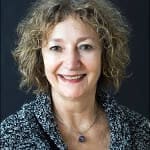
Frédérique Apffel-Marglin is founder of the Sachamama Center for Biocultural Regeneration, and is the author of five books, the editor or co-editor of an additional eight books and the author of more than fifty five articles and book chapters. Her interests cover ritual, gender, political ecology, critiques of development, science studies and Andean-Amazonian shamanism. Her areas of specialization are South Asia and the Amazonian Andes. You may view an excellent video on her work here.
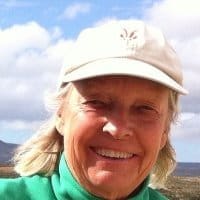
Sally Dodge and Dale Guldbrandsen have served as Northeast Community Development Managers for Iroquois Valley Farms since 2013.
Sally was a pioneer in the locally grown foods movement beginning in the 1970s and 80s, when she managed a large beefalo operation in Vermont, and later created the Taste of Vermont, an annual event that linked farmers and chefs, and grew into the Vermont Fresh Network. Joining Iroquois Valley Farms has enabled Sally to contribute many years of experience in the promotion of organic farming, farm economics, and healthy food. Sally is a member of the board of advisors of Soil4Climate.
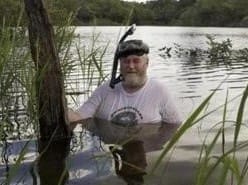
Scott Dowd is a conservation biologist at New England Aquarium in Boston, MA, USA and Executive Director of Project Piaba. He received his M.Sc. from the University of Stirling in 2003; his thesis was entitled “Observations on the cardinal tetra fishery with an emphasis on the measurement of stress.” For more than 20 years, Scott has been actively involved in conservation of the cardinal tetra fishery in the mid-Rio Negro region of the Amazon, working along the entire industry chain of Amazonian fishermen, exporters, importers, retail stores, and hobbyists. He continues to be a strong proponent of the trade in environmentally friendly aquarium fish worldwide. Scott has recently established the Home Aquarium Fish Sub-group within the International Union for the Conservation of Nature Freshwater Fishes Specialty Group (IUCN FFSG). Read more about Scott’s work in the Boston Globe.
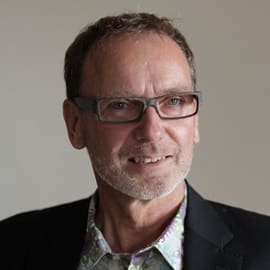
Herbert Dreiseitl is an internationally highly respected expert in creating Liveable Cities around the world with a special hallmark on the inspiring and innovative use of water to solve urban environmental challenges, connecting technology with aesthetics, encouraging people to take care and ownership of places. He has realized groundbreaking contemporary projects in the fields of urban design, urban hydrology, water art, stormwater management, planning and landscape architecture like Berlin Potsdamer Platz with Renzo Piano, Tanner Springs Park Portland OG USA, Bishan – Ang Mo Kio Park in Singapore. He lectures worldwide and has authored many publications including three editions of Waterscapes. As the Director of the “Liveable Cities Lab” the new thinktank at the Rambøll Group International (LCL) and as founder of Atelier Dreiseitl, he integrates the organization’s strategic design and planning efforts by demonstrating a portfolio of site-responsive interventions of urban planning, hydrology and environmental engineering. He is a Harvard Graduate School of Design Loeb Fellow and visiting Professor at NUS Singapore. To better respond to demands from cities in Summer 2017, Herbert opened a new office in Boston.
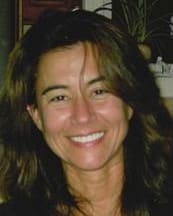
Dr. Anamarija Frankić is a founding director of the Green Harbors Project®, and the Biomimicry LivingLabs®, a research faculty at UMass Boston and University of Zadar, Croatia. She is a Biomimicry, Fulbright and Sea Grant Knauss Fellow. In 2014 she founded Biomimicry New England. Her educational background in biology, ecology, limnology and marine science, guided her interdisciplinary restoration research and management work in coastal, marine and fresh water ecosystems, nationally and internationally. Her work is about integrating human services with ecological services and functions in our built environments to support resiliency and sustainability. She initiated and established the “LivingLabs” for applied science education and research where students, local communities and businesses are able to “learn and teach by doing” biomimicry, applying nature’s wisdom for a resilient today and tomorrow; her premise is that “the environment sets the limits for sustainable development.”
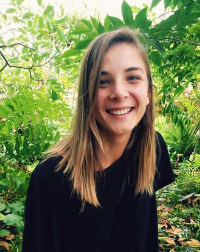
Ana Sofia Gonzalez is an environmentalist with chemical engineering background focused on restorative agroforestry in dry lands to increase resilience of food production systems. She is currently developing strategies that propose restorative food systems as a mitigation strategy to reduce forced migration caused by climate change. Sofia is Founder of Plantum.mx, a consultancy firm focused in design and implementation of restorative ecological systems for the mitigation and adaptation of climate change challenges in the urban and rural environments.
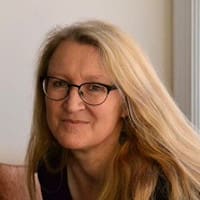
Tina Grotzer is a member of the faculty of education at the Harvard Graduate School of Education, a Principal Research Scientist at Project Zero, and a faculty member at the Center for Health and the Global Environment at the Harvard School of Public Health.
Her research identifies ways in which understandings about the nature of causality impact our ability to deal with complexity in our world. It has four dominant strands: 1) How reasoning about causal complexity interacts with our decisions in the everyday world; 2) How causal understanding develops in supported contexts; 3) How causal understanding interacts with science learning (with the goal of developing curriculum to support deep understanding); and 4) the public understanding of science given the nature of science, the nature of causal complexity and the architecture of the human mind.
Tina directs the Causal Learning in a Complex World Research Lab. Her work is funded by the National Science Foundation (NSF). She was awarded a Career Award from NSF in 2009 and a Presidential Early Career Award for Scientists and Engineers (PECASE) from President Obama in 2011.
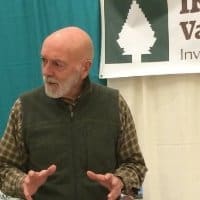
Sally Dodge and Dale Guldbrandsen have served as Northeast Community Development Managers for Iroquois Valley Farms since 2013.
Dale worked on his grandfather’s farms near Peoria, Illinois, during his youth, and also on farms near Plymouth, Michigan. He worked in Fortune 500 companies for 30 years, and later provided performance improvement services in many economic sectors, including manufacturing, health care and education. He has now circled back to the food and farming revolution as his main passion in joining Iroquois Valley Farms.
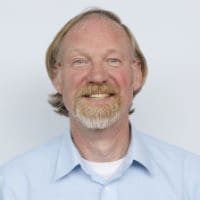
Christopher Haines is a seasoned architect licensed in both MA and NY who applies expertise in regenerative architectural design, healthy materials, preservation, renovation and specification writing to small commercial and urban projects. He has spoken for years at US and international forums as well as formally teaching sustainability and environmental management to undergraduate and graduate students. Christopher has been deeply involved in the Living Building Challenge and is certified as a Living Building Challenge and Passive House consultant.
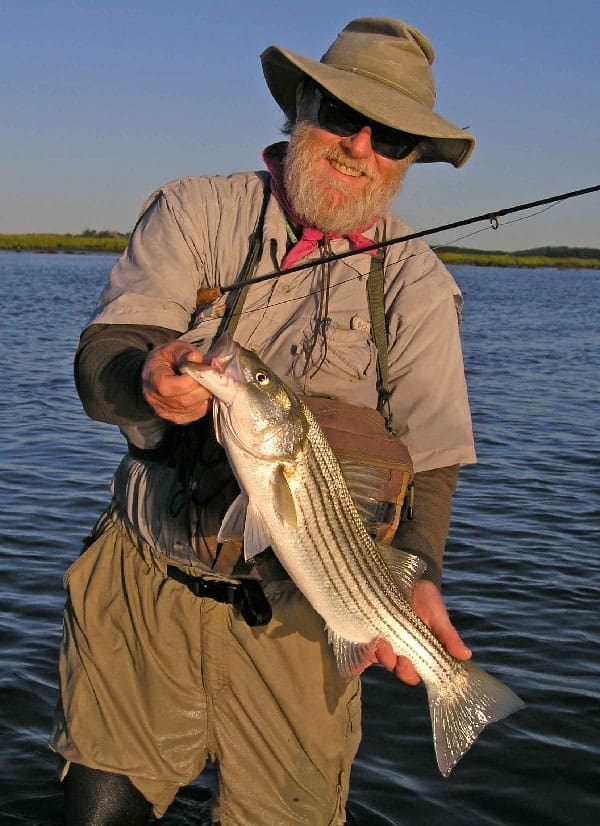
Fred Jennings holds degrees in economics from Harvard (B.A.) and Stanford (Ph.D.), and taught in the economics departments at Tufts University and Bentley College before becoming a specialist in economic litigation (calculating damages, analyzing markets, and expert testimony) He is president and founder of the Center for Ecological Economic and Ethical Education (CEEEE), an organization devoted to the promulgation of new ways of framing and thinking about economic analysis and behavior from an ecological and ethical standpoint. He is also owner of Peak Dawn Anglers, which offers light tackle motorless saltwater low impact tidal fly fishing trips in an Ipswich estuarial river from May through September each year.
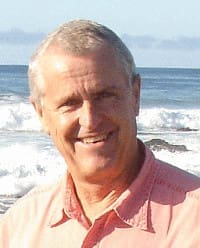
Dr. David C. Johnson is Director of the Institute for Sustainable Agricultural Research at NMSU currently working with local growers and collaborating with: Los Alamos and Sandia National Laboratories; Texas A&M; Arizona State University; California State University, Chico; University of California, Davis; USDA Natural Resources Conservation Service; and the Thornburg Foundation, exploring paths to: improve food security in New Mexico, reduce atmospheric CO2 concentrations. increase farm and rangeland productivity and improve water-use efficiency in agriculture through the development of beneficial soil microbial communities in agroecosystems. He also trained as a a molecular biologist at New Mexico State University, has conducted research on bio-hydrogen generation, pollution remediation processes for regional mine closures, advance oxidation processes for cleaning up MTBE and PCE contaminated super-fund sites, reverse-osmosis and electro-dialysis reversal water desalination processes, and algae cultivation processes for bio-fuel production.
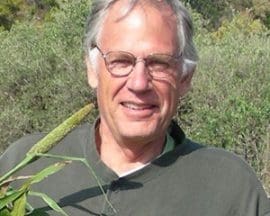
Since 2007 Tim LaSalle has championed his science-based hope for a regenerative food system that will mitigate climate change by carbon sequestration in place of soil carbon loss. He has served as the first CEO of Rodale Institute; Executive Director of the Northwest Earth Institute, an organization dedicated to grass roots movements; Executive Director of the Allan Savory Center for Holistic Management, an international non-profit whose mission is to restore and regenerative deteriorating landscapes; consultant, advisor, and research coordinator for the Howard Buffett Foundation in Africa on soils and food security for smallholder farmers and most recently co-founder of the Regenerative Agriculture Initiative at California State University Chico.
While serving as a professor at California Polytechnic State University, he also started and operated his own dairy farm an became involved with the California Agricultural Leadership Program. LaSalle soon became its CEO, where he arranged educational leadership programs in more than 80 countries with heads of state, ministers and community leaders, and thus became exposed and a student of many of humanity’s global challenges, of which climate change and soil loss remain our most pressing.
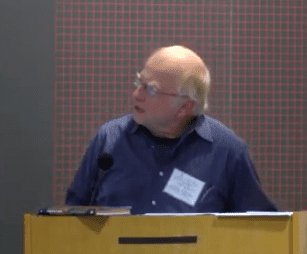
Jim Laurie is a restoration biologist and co-founder of Biodiversity for a Livable Climate. He has been learning how to restore lands and waters for 30 years and was the manager of the Vermont “Living Machine” which treated 80,000 gallons of sewage per day and was designed by ecological visionary John Todd. For 20 years he was a biologist and technical trainer in the chemical industry in Houston, TX, where his work with ecological systems created high quality water from toxic wastewater.
Jim has studied Holistic Management of grasslands with Allan Savory and the Savory Institute in Texas, Colorado and Montana. In Maryland, he built a lab to study fungi and grow mushrooms learning from the work of Paul Stamets (fungi.com). He worked with the International Wolf Center in Minnesota learning about predators and the biology of the north woods.
Jim loves sharing about these diverse experiences with curious folks of all ages. He has really enjoyed teaching science and ecology to Homeschool students in the Boston area.

Joan Maloof is the founder and Executive Director of the Old-Growth Forest Network. Formerly on the faculty of Salisbury University, She spends her time lecturing, writing, visiting forests, assisting private landowners, and supporting local groups trying to protect community forests from development. She began her journey into the American forest as a scientist, studying the natural workings of the planet – the systems that enable the trees and flowers and animals to subsist on their own with no help from humans. But when she looked around for natural places to study she found that almost everything had been affected by humans. Joan realized that as a scientist she could do very little to ensure that at least some of the forests would be left alone, but that as a writer she could share what other scientists had learned about the importance of ancient forests. So Joan made the transition from scientist to writer, and wrote several books, including, Nature’s Temples: The Complex World of Old-Growth Forests and her latest, The Living Forest: A Visual Journey Into the Heart of the Woods.
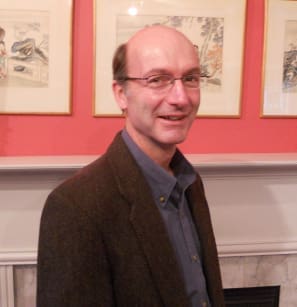
Bob O’Connor is Forest & Land Policy Director for the Massachusetts Executive Office of Energy & Environmental Affairs (EEA). Bob’s responsibilities for the Commonwealth encompass an extraordinary array of all things land conservation and forestry, plus all EEA grant programs, plus a variety of other important conservation-related initiatives, like the relatively new Land Conservation Tax Credit and Massachusetts’ Global Warming Solutions Act.
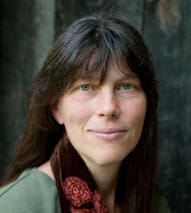
Didi Pershouse is a cross-pollinator, helping to connect the dots between soil health and human health. She is the author of The Ecology of Care: Medicine, Agriculture, Money, and the Quiet Power of Human and Microbial Communities and the founder of the Center for Sustainable Medicine. After 22 years of clinical work with patients, she is now working with the Soil Carbon Coalition on a large-scale citizen-science program that engages schools, conservation districts, and landowners in understanding the intersections between soil health, public health, and climate resiliency. She develops learning resources on whole systems landscape function—in particular how to measure, understand, and restore the carbon and water cycles that make life on this planet possible. She also teaches workshops for community leaders on how to build trusted networks of peer support.
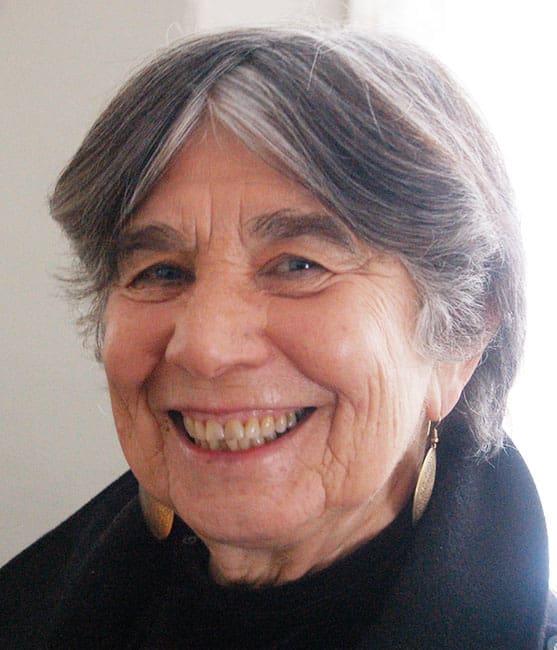
Paula Phipps, Associate Director at Biodiversity for a Livable Climate, holds a Masters Degree from Tuft’s Eliot-Pearson School as a teacher/therapist for preschool disturbed children and their families. For 20 years she was a preschool director and Childrens’ Services Director for a Head Start program in Somerville, Massachusetts. For the past five years she has focused on raising awareness of the enormity and immediacy of the threat of climate disruption and its effects on children. She has been actively involved in Cambridge, Massachusetts politics and advocacy for many years. She has been working at Biodiversity for a Livable Climate since 2015.
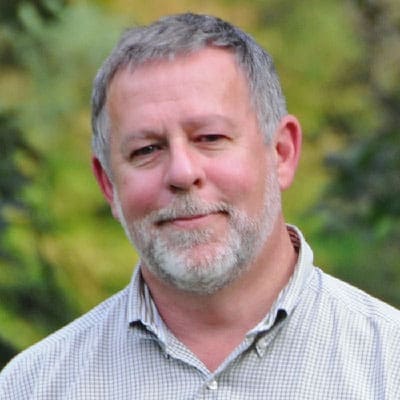
Bill Reed is an internationally recognized practitioner, lecturer, and leading authority in sustainability and regenerative planning, design and implementation. Bill is a principal in Integrative Design, Inc. and Regenesis Group – organizations working to lift green building and community planning into full integration and evolution with living systems. His work centers on creating and implementing a whole and living-systems design process. The benefits of this process include higher efficiency, lower costs, reduced waste, faster time to market, and the realization of exponential value to the social, ecological, financial and human qualities of a project, the community and its ecosystem.
Bill is an author of many technical articles and contributed to many books including co-author of the seminal work, “Integrative Design Guide to Green Building.” He is a founding Board of Director of the US Green Building Council and one of the co-founders of the LEED Green Building Rating System. In addition to being considered one of the leading thinkers in this field, Bill has also consulted on over two hundred green design commissions, the majority which are LEED Gold and Platinum and Living Building Challenge projects. He is also a keynote speaker at major building and design events as well as a guest lecturer to universities throughout Europe and North America including Harvard, MIT, Princeton and UPenn.
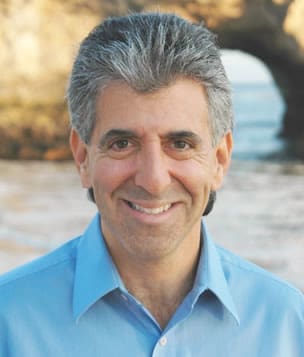
Daniel N. Robin, founder & managing partner of In3 Capital Partners, ABetterWorkplace and former adjunct professor at Monterey Institute of International Studies (MIIS, now Middlebury Institute), and has taught entrepreneurship, business planning, impact investing, and innovation for sustainability as faculty for the Sustainability Academy, as an independent consultant, and within a top-10 ranked international MBA program in California.
With more than 20 years financial, executive/board, impact investing and venture catalyst experience, Daniel uses holistic, integrative approaches to leading change, using biomimicry (nature-inspired), biorenewables (water/food/energy), green chemistry and clean technologies, project development, investment readiness and de-risking, and “conscious capital” formation strategies. Daniel brings diverse industry experience in renewable resources (food/water/forestry), waste-to-value, agriculture/agtech, health & nutraceuticals, biomaterials/bioplastics, clean energy / efficiency, IT/fintech, and real estate/housing.
Mr. Robin holds certificates in international business, Emerging Markets Finance (Moody’s Analytics, 2012), public speaking, coaching/facilitation, and NeuroLinguistics (NLP Comprehensive, 1991). LinkedIn
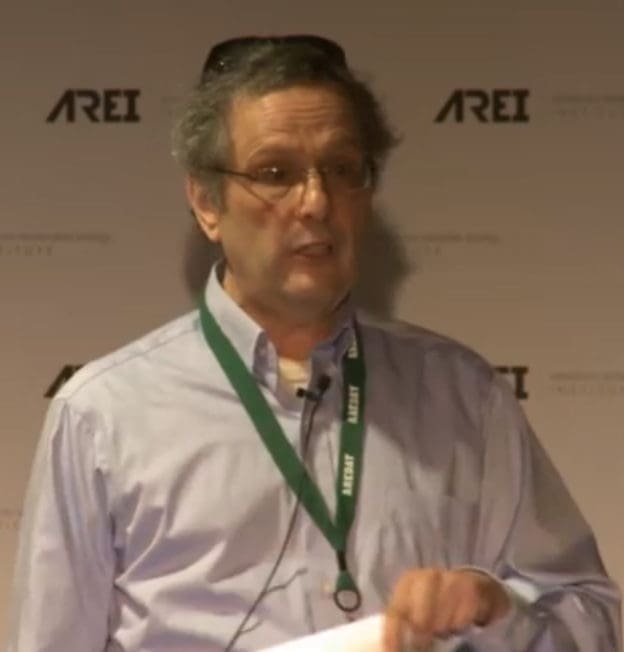
Adam Sacks is the Executive Director of Biodiversity for a Livable Climate. He has had careers in education, holistic medicine, computer technology, politics, and advocacy. A climate activist since 2000, since 2007 he has been studying and writing about the power of biology to reverse global warming and restore the earth. In 2009-10 he published articles in the online magazine, Grist, which described and anticipated some of today’s climate developments. His primary goal is regeneration of biodiversity and a livable planet for his daughter, grandson, and their 7+ billion cousins. Adam’s other interests include art, classical piano, anthropology and the practice of science in the twenty-first century.
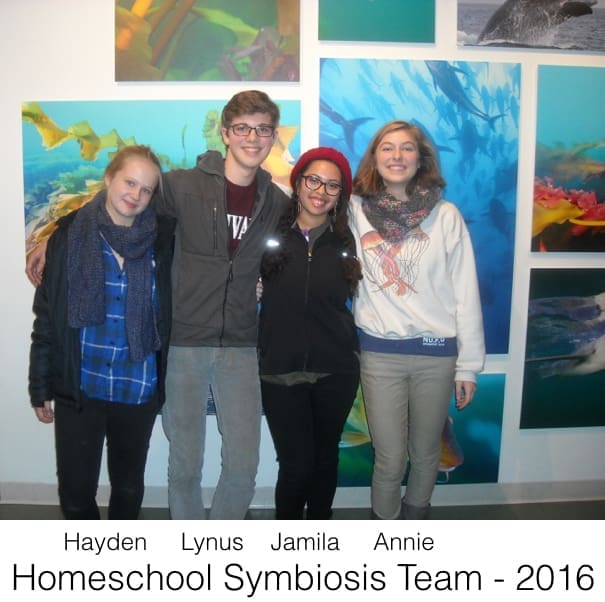
The Homeschool Symbiosis Team
Annie Selle studies the beautiful intricacies of nature through both art and biology, and is an advocate for animal rights and the environment. She believes that humans have the power to change our society, and is optimistic about the future of the Earth.
Jamila dePeiza-Kern has studied environmental science, chemistry, geography, and geology, She has developed a strong interest in maintaining the health of our planet. An enthusiastic learner, musician, traveler, and activist, she loves mountains, forests, rivers, and riparian zones. She is committed to raising awareness and educating the public about living sustainably.
Hayden Latimer-Ireland is a dancer, singer, and actor who is also interested in nature and restoring ecosystems. She is now exploring psychology and political science.
Lynus Erickson is passionate about the the environment, sustainable farming, and water systems. He likes to go hiking and likes to build and create. He hosts a living machine at his house and wonders how to create the balance needed for peaceful coexistence between humans and nature’s ecosystems.
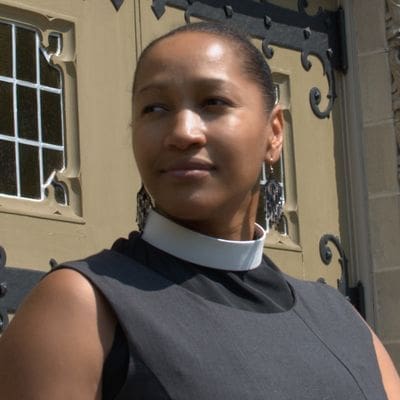
Rev. Mariama White-Hammond serves as the Minister for Ecological Justice at Bethel AME Church in Boston and as a fellow with the Green Justice Coalition, a partnership of environmental justice groups. From 2001-2014 she was the Executive Director of Project HIP-HOP where she used the arts to help young people to find their voice and create artistic pieces on issues ranging from juvenile incarceration to funding for public transportation. They performed throughout Greater Boston in camps, homeless shelters, senior citizens homes and public transit stations as well as for leaders like the mayor and governor.
In April 2016, she was ordained in the African Methodist Episcopal Church and in May 2017 she graduated from Boston University School of Theology with a Masters of Divinity. Rev. Mariama is very committed to engaging the faith community on social justice issues, and particularly Black churches on ecological justice. She speaks throughout the country and serves on a number of boards and committees including the New England Grassroots Environmental Fund, Union Capital Boston and the Moral Movement Massachusetts.
In 2017 she was the MC for both the Boston Women’s March and the Boston People’s Climate Mobilization. Rev. Mariama has received numerous awards including the Barr Fellowship, the Celtics Heroes Among Us, and the Boston NAACP Image Award.
